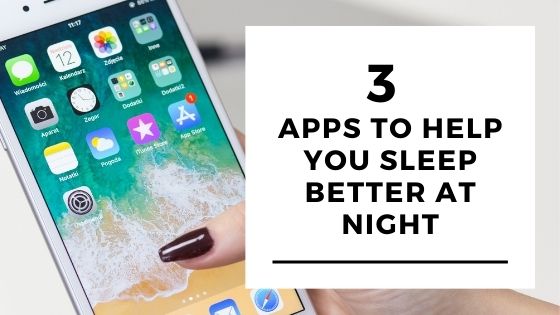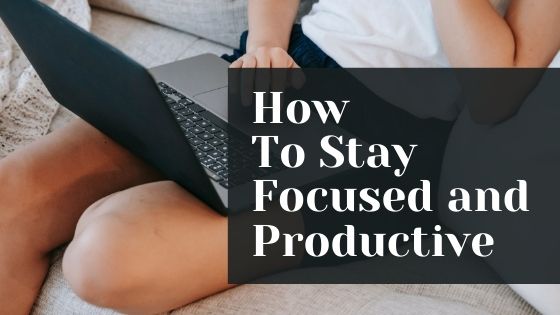Wednesday 30 June 2021
3 Apps That Can Help You Sleep Better At Night
Stress can rob you of sleep and keep you tossing and turning all night if it's not well managed. This can affect both the quality of sleep and the duration of sleep. The National Foundation of Sleep conducted a survey that revealed that 43% of people aged 13 - 64 have reported lying awake at night due to stress at least once a month. On the other hand, poor sleep can cause stress.
Reducing stress and anxiety will help improve the quality and duration of sleep. Apps in your mobile phone can be a needed ally to help you get more sleep. These health and wellness apps contain resources like guided meditations, sleep music, and even courses specially developed to help you manage anxiety, stress, and insomnia. These three apps are some of the most acclaimed health and wellness dealing with stress and sleep.
Headspace
This app's tagline is Be Kind To Your Mind. This mantra is perfect for when you are feeling stressed out and can't sleep. The app teaches you how to deal with stress and anxiety, meditate and live mindfully. You will also find sleep meditations, relaxing sleep music, and sleepcasts to help you relax and sleep. The app is free for the basics and charges a monthly fee for advanced features.
Calm
The Calm app is a highly rated app for relief from stress and anxiety. It has a wide variety of meditations ranging from beginner to advanced. The user can choose what type of meditation they prefer and for how long. This app also has an option for nature sounds which can be great as white noise for stress relief. It offers guided meditations, breathing programs, masterclasses, and relaxing music. This app is also free with in-app purchase options.
Dare
This app is based on the best-selling book 'DARE' which helps people overcome anxiety and panic attacks fast. It is a training program to help people overcome anxiety, panic attacks, worry, and insomnia. One of its features is the collection of free audio guides to help you feel confident. You can also track your progress daily with the mood journal. The app is free with an optional paid subscription.
Your phone can be a treasure trove of resources to relieve your stress and help you sleep well. You may have to download a few of these apps to find the one you like and maybe even pay for advanced features. But, getting a good night's sleep and staying calm and productive is well worth it.
Monday 14 June 2021
Importance of Sleep To Reduce Stress: How sleeping Helps With Stress and Anxiety
 |
Sadly, stress is part of life. At some point, everyone experiences stress. Physical, emotional, and other types of stress take their toll on our minds and bodies. That's why sleep is so important. Sleep can help reduce stress and its effects.
Our bodies use sleep to recover. While we sleep, our bodies carry out important restorative functions. It's amazing how much our minds and bodies remain active even when we are sleeping.
Stress affects the mind and body
Stress affects our mood
Stress affects our relationships
Tuesday 1 June 2021
How To Stay Focused And Productive
Focus is the key to productivity.
Most of what we say and do is not essential. If you can eliminate it, you will have more time snd more tranquility. Ask yourself at every moment," Is this necessary?" - Marcus Aurelius
In this article, you will learn why focus is important in both your personal and professional life. You will also learn tips and strategies for keeping your focus so you can be more productive.
Why is focus important?
When you focus on a single task, avoiding distractions, your brain becomes focused on that task alone. This lets you complete that task much quicker than if you were trying to complete two or three tasks at once.
For instance, let's say you have to write a report, do your meal planning for the week, and research information for an upcoming speech. The best thing to do is to set aside all but one task.
So, for this example, you want to give all your attention to writing your report. That means turning off the TV, cell phone, social media notifications, closing your door, and putting all your attention on writing this report.
When you focus on the task at hand without distractions, your work will be of higher quality because you will only be thinking about what you are working on at present. Also, your creativity will kick in, allowing you to come up with ideas for the task you are working on.
Focus also allows your subconscious to do the work. Remember when you first learned how to ride a bike or drive a car. At first, it was difficult. But as you focused on what you were doing, your subconscious took over and helped you learn. The same is true in your everyday tasks. Once you begin focusing solely on one task, your subconscious helps you do it quicker and easier.
Why is multitasking bad?
If you are like many people, you spend your days multitasking i.e doing many things at the same time. You are probably so used to multitasking, you don't realize when you are doing it. You also believe it helps you save time.
Multitasking is bad for so many reasons.
Multitaskers lose productivity. Switching between tasks is counterproductive. You lose time and concentration every time you switch to a different task.
Multitaskers are less likely to finish one quality project. They may finish all their tasks for the day but they will most likely be sub-par than if they had focused on one to completion before starting another one.
Multitasking can affect your relationships. If you constantly check your phone and send text messages while interacting and talking to other people, it can put people off.
Multitasking can cause you stress. If you are writing a report, trying to remember the emails you have to reply to, and cooking dinner at the same time, you may lose focus on the task you are doing.
Instead of multitasking, prioritize your tasks and break them up into chunks.







